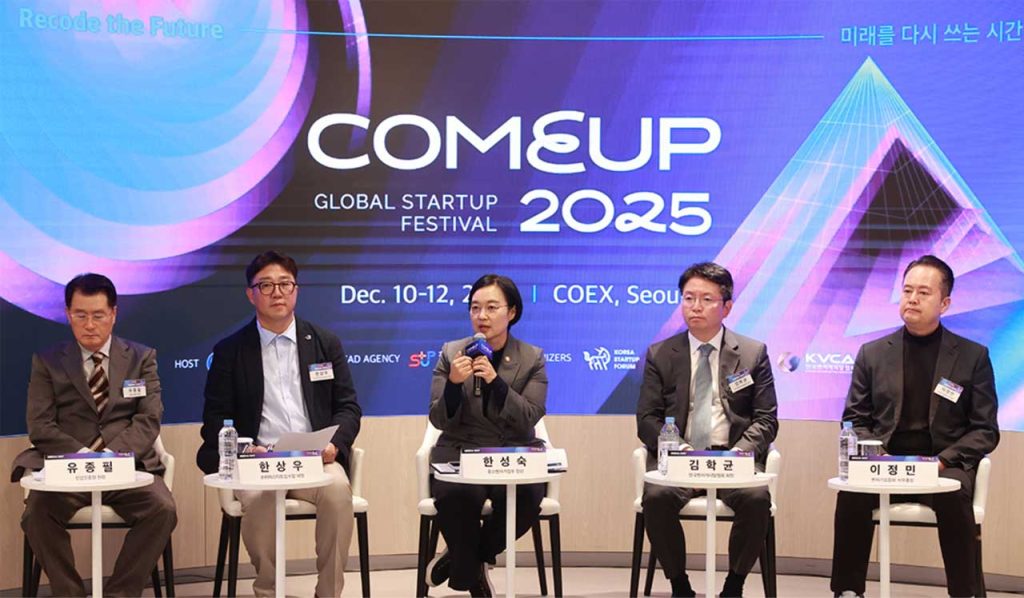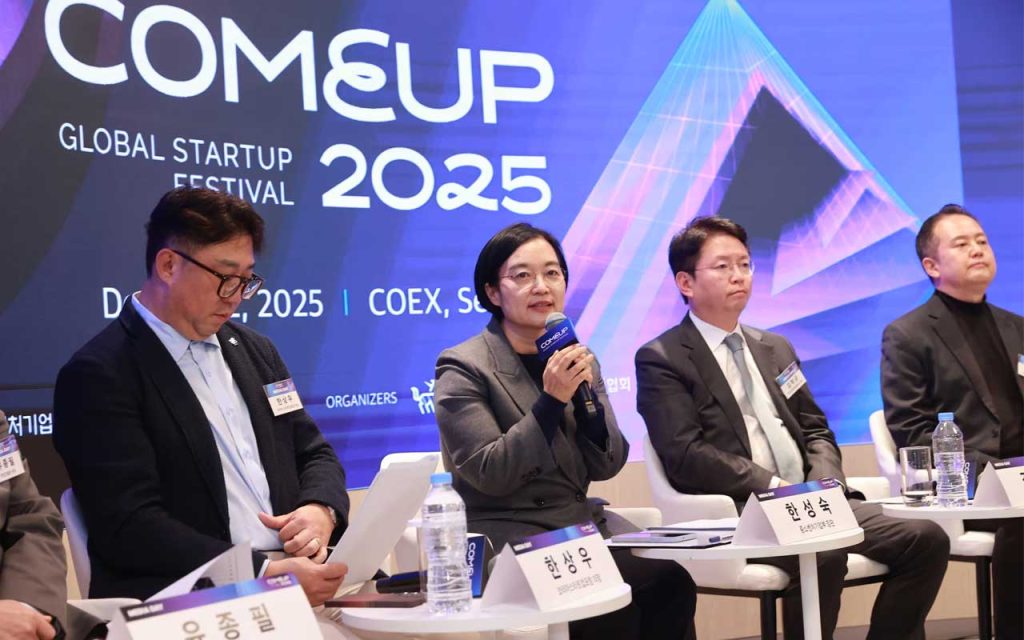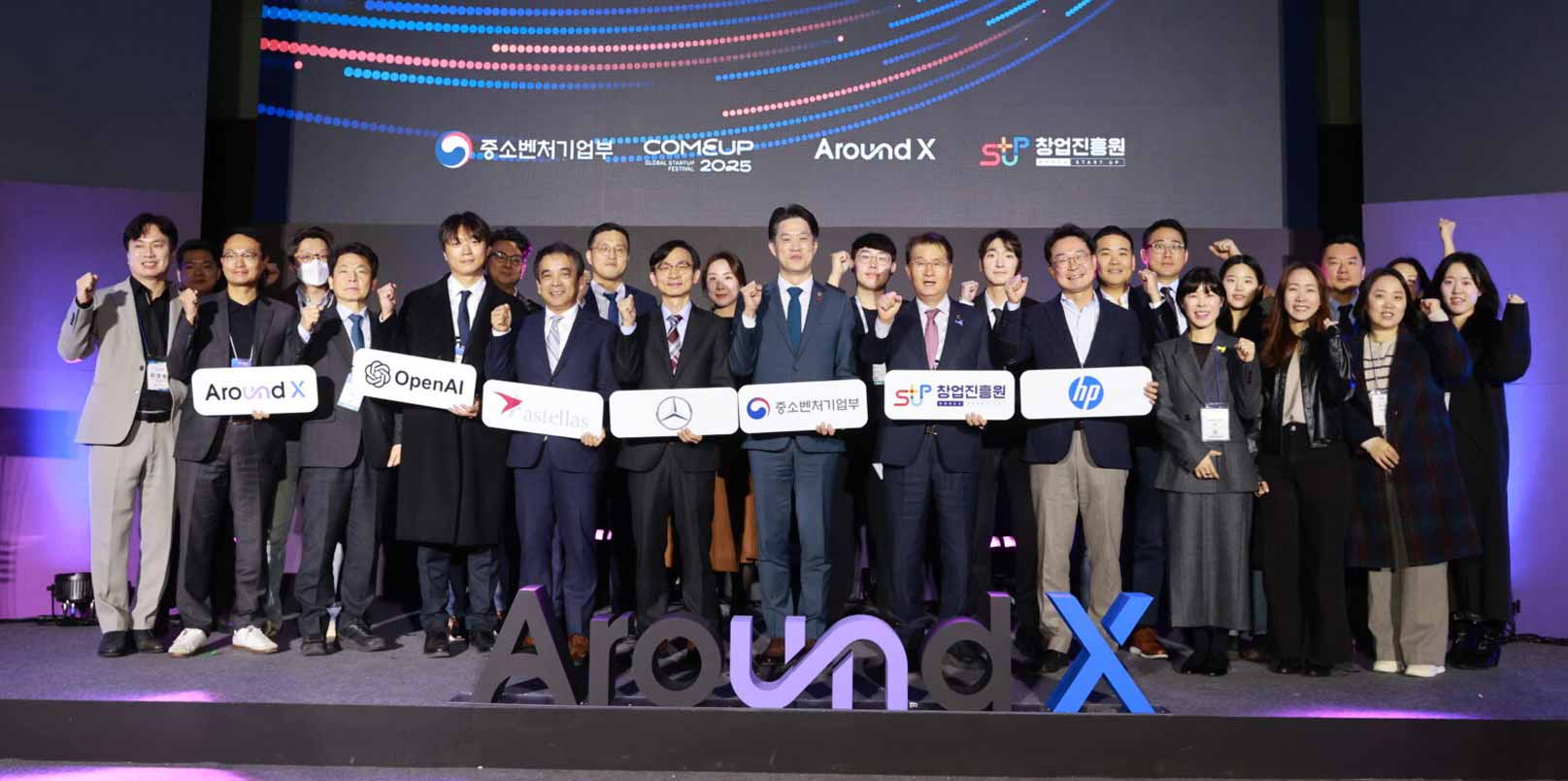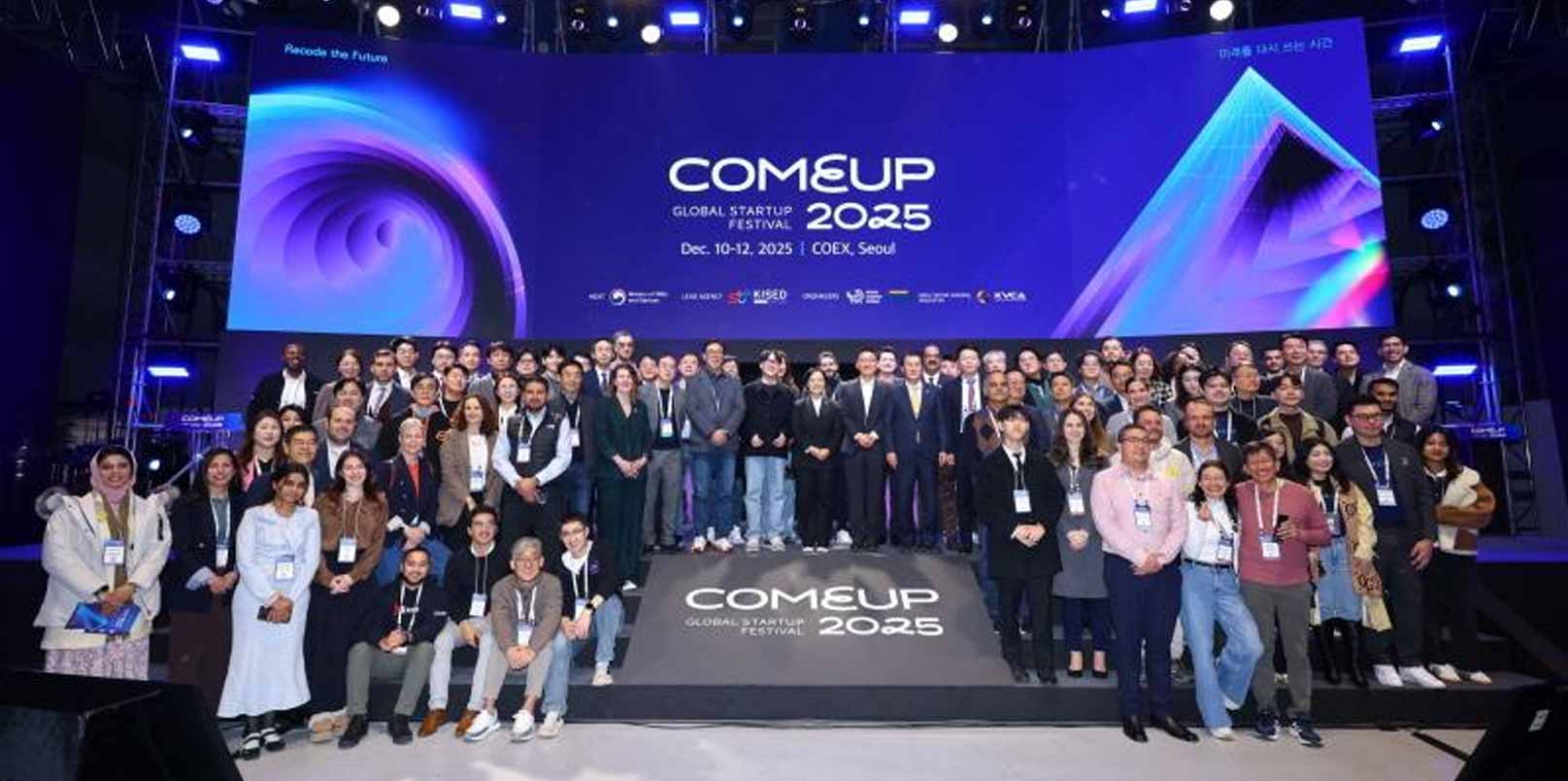Korea is preparing for the next leap in its startup evolution. The Ministry of SMEs and Startups (MSS) announced that COMEUP 2025, the country’s flagship startup festival, will be held December 10–12 at COEX, Seoul, with a renewed focus on global collaboration, deep-tech innovation, and cross-border investment.
Now in its sixth year, COMEUP has evolved from a domestic showcase into a global platform bridging investors, corporations, and entrepreneurs. This year’s event carries the slogan “Recode the Future,” symbolizing startups’ ambition to redefine industries and transcend national boundaries.
COMEUP 2025: Korea’s Flagship Startup Festival Returns Stronger
At the COMEUP 2025 Media Day held on November 20 at the Global Startup Center (GSC) in Seoul, Minister of SMEs and Startups Han Seong-sook emphasized that 2025 marks a milestone for the ecosystem — the 30th anniversary of Korea’s venture movement and the 20th anniversary of the Fund of Funds,
“This is a meaningful year that will mark the beginning of a new venture and startup boom.
We are building a solid ecosystem that allows talented innovators to take bold challenges and become a driving force for national growth.”
This year’s COMEUP will gather 170 startups from 46 countries, including seven national pavilions representing Saudi Arabia, India, Japan, Canada, Australia, Angola, and Sierra Leone.
Last year’s edition hosted 150 international startups from 45 countries, a record that positioned COMEUP as Asia’s leading startup festival.

Expanding Global Investment and Collaboration Through COMEUP 2025
The 2025 edition intensifies its investment agenda. The MSS and the Korea Startup Forum (KSF) designed programs that connect startups with global VCs, corporate venture capitals (CVCs), and accelerators through pre-scheduled one-on-one meetings, investor booths, and pitching sessions.
Major corporations such as Mercedes-Benz, Hyundai Motor, NVIDIA, and NHN will join 35 global and mid-sized firms in an open innovation program, sharing collaboration cases and hosting on-site consultations.
According to MSS data, venture investment in Korea reached KRW 9.8 trillion (USD 7.1 billion) in the first three quarters of 2025 — a 13.1% increase year-on-year and the first full recovery since 2022. Private-sector contributions made up 83% of total venture fund formation, signaling renewed confidence in the ecosystem.
Last year’s COMEUP achieved 1,860 business matchings, including 474 startup–investor meetings, resulting in more than KRW 20 billion (USD 15 million) in follow-up investments.
With stronger global participation this year, outcomes are expected to multiply.
A Global Platform for Korea’s Evolution to Become A Mature Venture Hub
Minister Han Seong-sook underscored COMEUP’s role as a global platform for shared growth, saying:
“As startup ecosystems expand worldwide, understanding both the commonalities and differences between countries is essential. A healthy ecosystem connects the experience of established companies, the insight of venture capitalists, and the innovation of startups.”

Han Sang-woo, Chairman of the Korea Startup Forum, added that COMEUP’s growing global reach mirrors Korea’s evolution into a mature venture hub,
“COMEUP is no longer just a Korean startup event but a global meeting point where founders, investors, and governments shape future innovation together.”
The opening keynote will feature Tareq Amin, CEO of Saudi Arabia’s national AI company Humain, and Park Sung-hyun, CEO of Korea’s AI semiconductor firm Rebellions, symbolizing collaboration between two rising innovation economies.
Beyond Investment: Deep-Tech, Social Impact, and Youth Inclusion
COMEUP 2025 also expands into social and educational initiatives. A dedicated social venture track will highlight startups addressing climate challenges, featuring Kim Jong-kyu, CEO of 60Hertz, alongside impact investors Sopoong Ventures and the Impact Foundation.
As for younger participants and general visitors, programs such as the COMEUP Docent Tour and COMEUP Flea Market will offer guided insights into startup operations and product showcases.
Notably, middle and high school founders will take the stage, reflecting Korea’s growing youth entrepreneurship movement.
Side events include the Open Data X AI Challenge, the Challenge! K–Startup 2025 Grand Finals co-hosted by ten ministries, and the K-Startup Grand Challenge Demo Day, which brings together international founders under government acceleration programs.
Setting the Global Stage for Korea’s Future Venture
The return of large-scale venture investment and growing global participation at COMEUP 2025 signal a structural rebound in Korea’s startup ecosystem. After three years of funding slowdown, investor optimism and private capital engagement have revived.
COMEUP’s transformation — from a domestic showcase to a global investment and policy platform — demonstrates Korea’s ability to align government strategy, corporate participation, and startup innovation toward international competitiveness.
The event’s deep-tech focus also reflects a strategic pivot. Korea’s future growth depends increasingly on AI, green manufacturing, and deep-tech sectors that can integrate into global value chains. COMEUP 2025 provides the stage for these cross-border dialogues to unfold.
Designing the Next Decade of Korean Innovation
As Korea celebrates its 30 years of venture history, COMEUP 2025 serves as a barometer of how policy, capital, and innovation converge to build the country’s next decade of startup growth.
Minister Han Seong-sook concluded,
“From deep-tech breakthroughs to global expansion and the spread of entrepreneurial spirit across society, COMEUP 2025 will showcase the future that startups are rewriting.”
And so, for founders and investors watching Korea’s next wave of innovation, COMEUP 2025 will also reveal how the nation’s startup ecosystem is preparing not just to participate in global growth — but to help define it.

– Stay Ahead in Korea’s Startup Scene –
Get real-time insights, funding updates, and policy shifts shaping Korea’s innovation ecosystem.
➡️ Follow KoreaTechDesk on LinkedIn, X (Twitter), Threads, Bluesky, Telegram, Facebook, and WhatsApp Channel.






